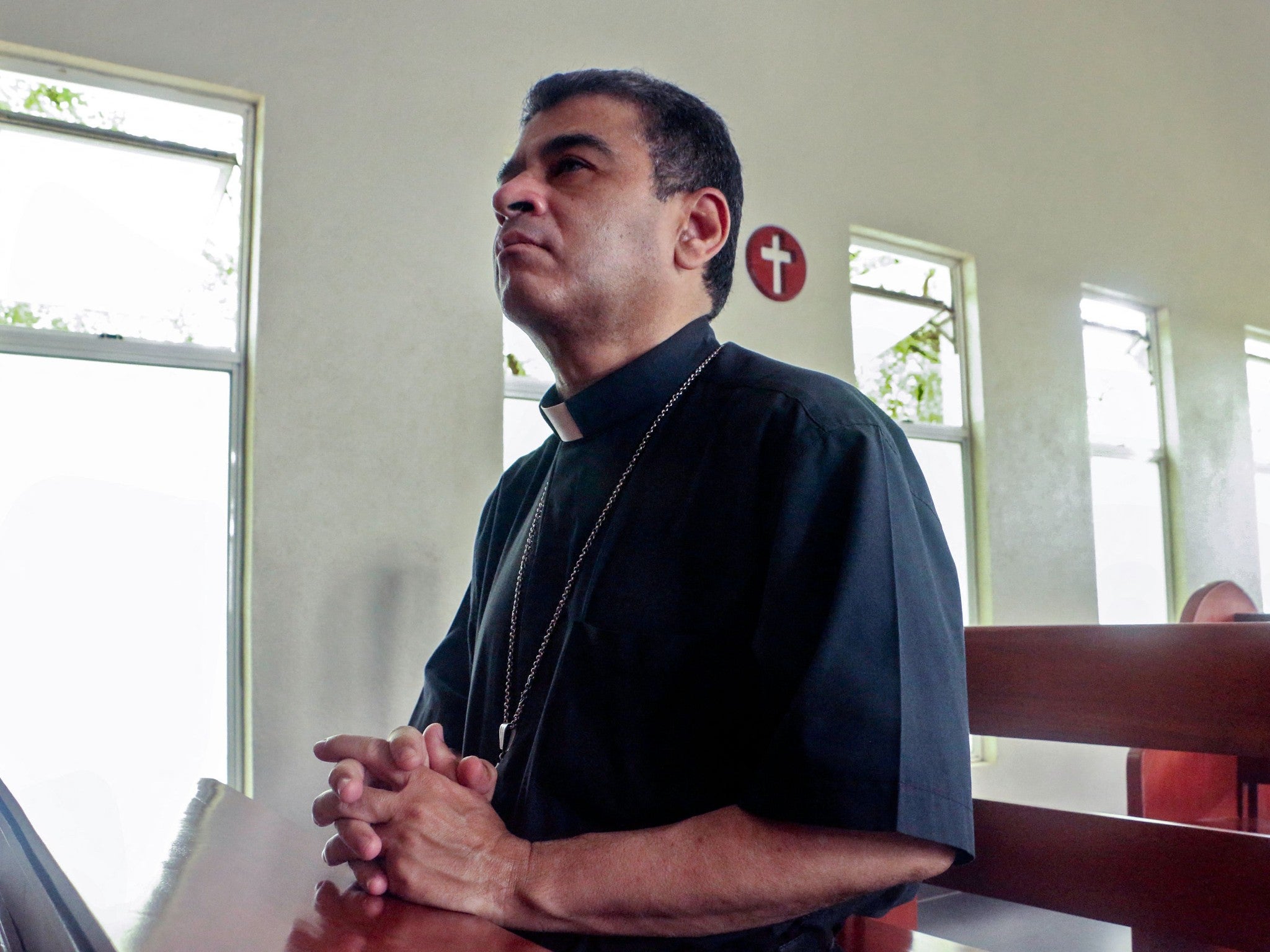‘I won’t leave my homeland’: Bishop imprisoned over criticism of Nicaragua’s Ortega refuses US flight
Bishop Rolando Alvarez did not board a flight to Washington along with 222 freed political prisoners – and will now face trial for ‘spreading false news’ in a case decried by human rights activists

Your support helps us to tell the story
From reproductive rights to climate change to Big Tech, The Independent is on the ground when the story is developing. Whether it's investigating the financials of Elon Musk's pro-Trump PAC or producing our latest documentary, 'The A Word', which shines a light on the American women fighting for reproductive rights, we know how important it is to parse out the facts from the messaging.
At such a critical moment in US history, we need reporters on the ground. Your donation allows us to keep sending journalists to speak to both sides of the story.
The Independent is trusted by Americans across the entire political spectrum. And unlike many other quality news outlets, we choose not to lock Americans out of our reporting and analysis with paywalls. We believe quality journalism should be available to everyone, paid for by those who can afford it.
Your support makes all the difference.Among the more than 200 political prisoners just released by Nicaragua and sent on planes to the US, there was a significant name missing: Bishop Rolando Alvarez of Matagalpa.
Bishop Alvarez is a prominent member of the Nicaraguan Catholic Church who has sharply criticised the growing authoritarianism of president Daniel Ortega’s regime. His detention is part of President Ortega’s long-running crackdown on dissent.
Bishop Alvarez has been accused of “conspiracy and spreading false news” by President Ortega’s government, in what has been labelled a politically motivated act. The bishop is said to have refused to take a plane to the US with those who were freed, saying: “Let them go free, I will pay their sentence.” Catholic Church sources told El Pais that Bishop Alvarez had been removed from the building where he was under house arrest and taken to prison after he refused to board a plane to America.
The trial of Bishop Alvarez – who was arrested last August after he and other clergy barricaded themselves into Church property in a protest against, among wider issues, the closure of Catholic media outlets – was brought forward in recent weeks. It is now due to take place on 15 February, rather than the original date of 28 March. The same Catholic Church sources said that the proceedings were at an impasse, with the bishop reported to have been offered “exile or jail” but insisting that he did not want to “leave his homeland”.
A number of priests and other church members have been sentenced to prison terms in the last week on conspiracy charges, in a move condemned by human rights groups. Four Roman Catholic priests were sentenced to 10 years in prison on Monday over conspiracy charges stemming from long-standing government allegations that the Church had backed illegal pro-democracy protests.
Two seminary students and a cameraman who worked for the diocese were also sentenced on Monday, after another priest was sentenced to 10 years on the same charges on Sunday. All of the defendants were arrested last year, and all were stripped of the right to ever hold political office.
Those sentenced on Monday had worked with Bishop Alvarez. The priests were convicted in closed-door trials in which government-appointed defenders acted as the priests’ lawyers.
Earlier this week, the president of the Commission of the Bishops’ Conferences of the European Union, Cardinal Jean-Claude Hollerich, wrote a letter demanding the “immediate release” of Bishop Alvarez. The letter referred to “the persecution to which our Church and some of its members have been subjected in that country [Nicaragua] in recent times”, and in particular to the case of Bishop Alvarez. The letter also mentioned the priests who have been sentenced.
Beyond Bishop Alvarez, there was said to be one other person who refused to travel with the 222 political prisoners, who landed in Washington on Thursday.
The freed prisoners include five former presidential hopefuls who sought to challenge the increasingly authoritarian President Ortega in a 2021 election only to be jailed in an unprecedented criminalisation of political dissent in the Central American country.
Flanked by top security officials and sitting in front of national and ruling-party flags, President Ortega claimed in his televised remarks that all of the prisoners had sought to undermine national sovereignty, deriding them as “agents” of foreign powers.
“Let them have their mercenaries,” he said.
In a statement, the US secretary of state, Antony Blinken, praised the release of the prisoners as “a constructive step towards addressing human rights abuses”, adding that it could also lead to further dialogue between the countries.
Those freed will be allowed to enter the United States on emergency humanitarian grounds, the administration of US president Joe Biden said in a note to Congress.
Join our commenting forum
Join thought-provoking conversations, follow other Independent readers and see their replies
Comments